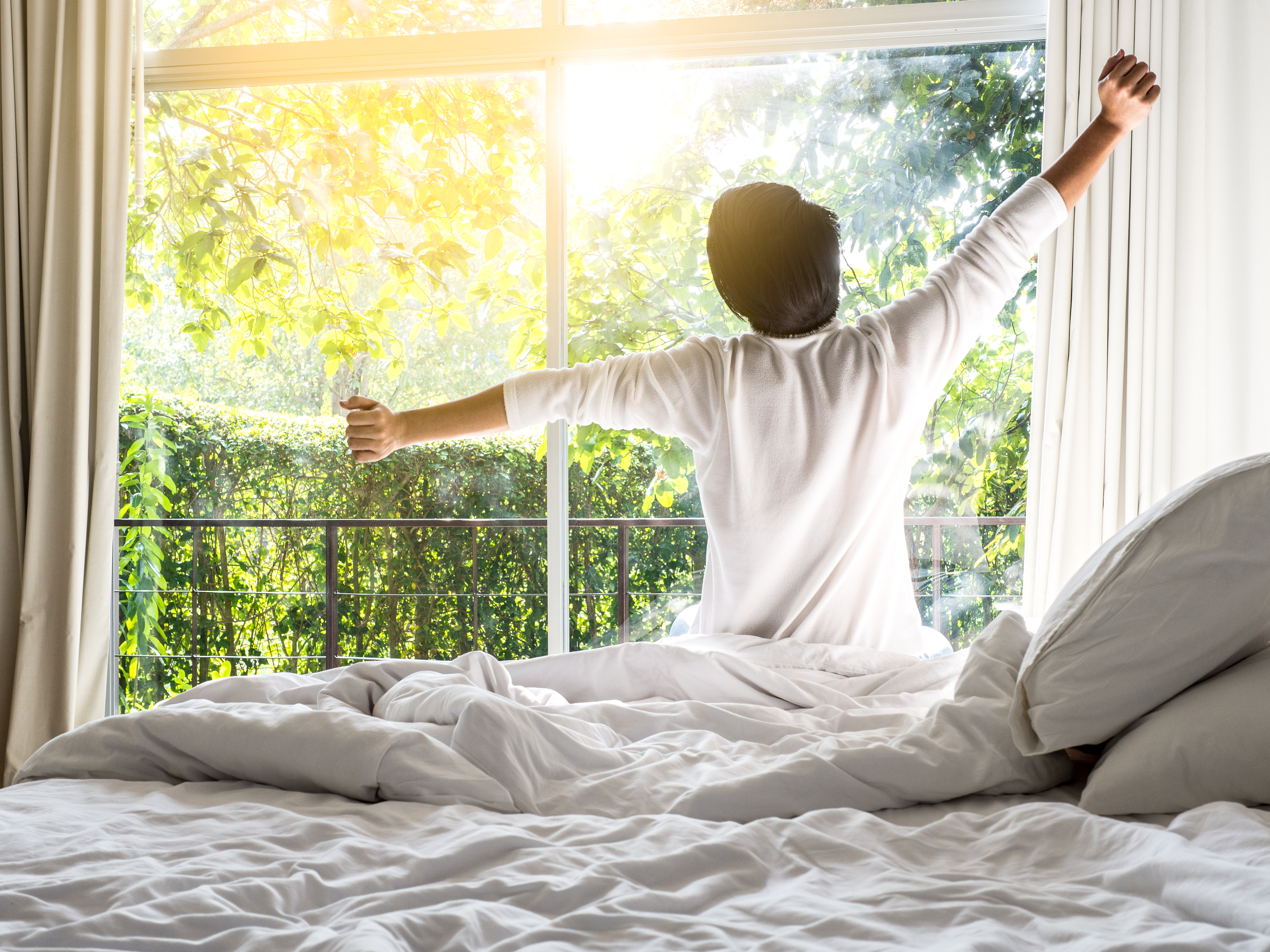
Studies have shown that the annual ritual of turning clocks ahead (or back) can throw us out of rhythm, causing adverse effects on our health, sleep, and lifestyle. How well we adapt to these time changes depends on a variety of things, but there are a few simple actions we can take to help us adapt quicker.
According to Summit Health pulmonologist and sleep disorders specialist, Dr. Daniel Levin, “It can take the body up to a week or longer to adjust to a time change, but the closer you stick to your regular routine, the better your body will do.”
Here are five tips from Dr. Levin to help you keep your “circadian” rhythm all year long.
- Adjust your sleep time to go to bed about 20 minutes earlier for each of the three nights prior to the change to Daylight Saving Time (DST). You should make the same change for your children as well.
- Go outside for a walk the Sunday morning of DST. The bright sunlight will help reset your internal clock and the morning exercise will be helpful as well.
- Avoid eating dinner or drinking alcohol too close to bedtime.
- Avoid taking naps late in the day.
- Don’t forget about your pets! Change their schedule (such as walking and feeding) gradually over the three days before and three days after the change to DST.
Adjusting to a time change is different for everyone, but studies show that many people are vulnerable to sleep deprivation when the transition is made from Standard Time to DST.
CityMD Medical Director for Manhattan Dr. Janette Nesheiwat agrees with Dr. Levin saying, “Even just one hour lost can leave a person feeling groggy and irritable. It can be uncomfortable, but interrupted sleep schedules can also be dangerous.”
While many people enjoy the extended daylight that accompanies DST, the change can have negative effects on health and well-being, including sleep deprivation, a decline in mental health, an increase in cardiovascular conditions such as heart attack and stroke, and a rise in workplace injuries.
“In a time when stress is high and sacrificing sleep has become all too common, we need to be mindful and do what we can to avoid potential negative outcomes,” says Dr. Nesheiwat. As DST approaches each year, Dr. Nesheiwat reminds her patients of some good habits that can make the transition a bit easier and keep them safe.
- Avoid caffeine after 1 p.m.
- Exercise routinely.
- Spend ample time outdoors. Exposure to sunlight can reduce feelings of tiredness that can accompany time changes.
- Eat a nutritious diet consisting of plenty of fruits and vegetables.
- Avoid watching TV and reading in bed. If reading helps you ease into sleep, do it elsewhere. Your bed should be associated with sleep.
Daylight Saving Time begins on Sunday, March 14 at 2:00 a.m. Don’t forget to set your clocks ahead by one hour on the evening of Saturday, March 13, 2021 before you go to bed. Spring forward!
